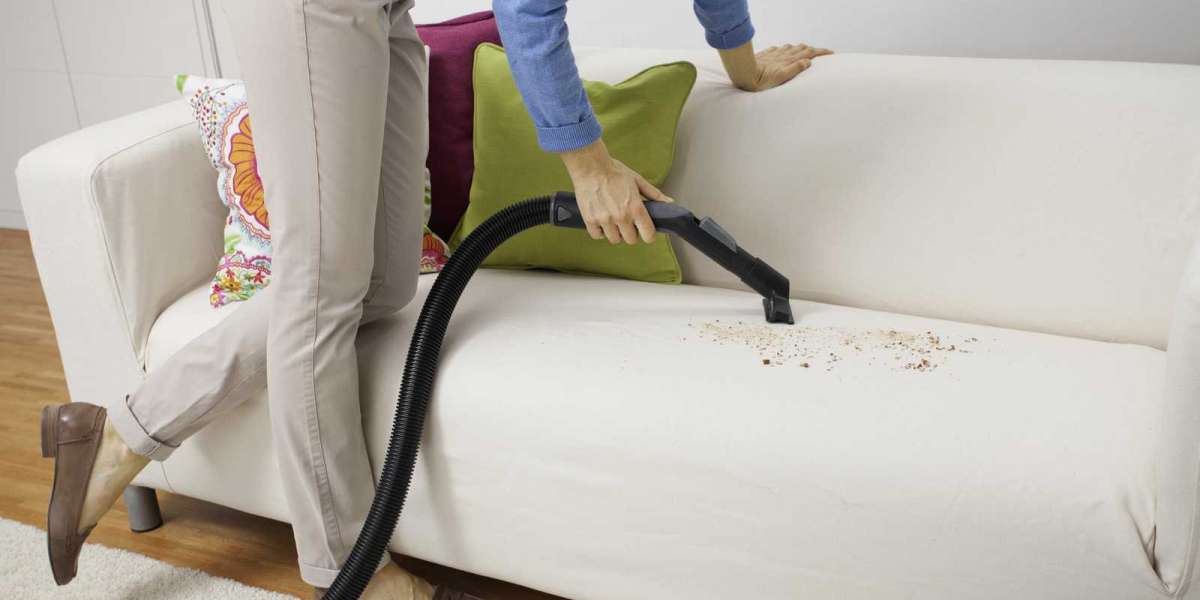Why Sofa Cleaning Is Essential
A sofa is often the centerpiece of a living room, offering comfort and style. However, its frequent use means it’s a hotspot for germs and grime. Regular sofa cleaning not only preserves its aesthetic appeal but also prevents health risks associated with dust mites, allergens, and bacteria.
Benefits of Regular Sofa Cleaning:
- Enhanced Longevity: Proper maintenance prolongs the life of your sofa.
- Improved Indoor Air Quality: Eliminating dust and allergens ensures cleaner air.
- Health Benefits: A clean sofa reduces the risk of respiratory issues and skin irritations.
Preparation for Effective Sofa Cleaning
Before diving into the cleaning process, it’s crucial to prepare adequately. Following these steps will make the task more manageable and effective.
Step 1: Check the Care Label
Most sofas come with a care label indicating suitable cleaning methods. Familiarize yourself with the recommended techniques, such as:
- W (Water-Based Cleaners): Safe to use water-based solutions.
- S (Solvent Cleaners): Requires dry-cleaning solvents.
- SW or WS: Compatible with both water and solvent cleaners.
- X: Vacuum only; avoid liquid-based cleaning.
Step 2: Gather Necessary Supplies
For a thorough sofa cleaning, assemble these essentials:
- Vacuum cleaner with upholstery attachment
- Soft-bristle brush
- Microfiber cloths
- Upholstery cleaner (store-bought or homemade)
- Baking soda
- Spray bottle
- Protective gloves
Vacuuming: The First Step in Sofa Cleaning
Start by vacuuming your sofa to remove loose dirt, crumbs, and pet hair. Use an upholstery attachment for crevices and a soft brush for delicate fabric. Vacuuming prevents dirt from embedding further during the cleaning process.
Removing Stains and Spots
Stains are inevitable, but with the right approach, they can be tackled effectively.
Step 1: Identify the Stain
Different stains require specific treatments:
- Food and Drink Spills: Use a mild dish soap solution.
- Grease: Apply cornstarch or baking soda to absorb oil.
- Ink and Dye: Dab with rubbing alcohol or a vinegar-water solution.
Step 2: Blot, Don’t Rub
When cleaning stains, blot gently to avoid spreading the mess or damaging the fabric. Always test any cleaning solution on an inconspicuous area first.
Deep Cleaning Your Sofa
Deep cleaning ensures a comprehensive refresh for your sofa. Depending on the fabric type, you can choose the appropriate method.
Steam Cleaning
For water-safe fabrics, steam cleaning is highly effective. This method:
- Kills bacteria and dust mites
- Loosens deep-seated dirt
- Restores the fabric’s texture
Follow the manufacturer’s instructions for your steam cleaner, and allow ample drying time.
Dry Cleaning
For solvent-only materials, use specialized dry-cleaning products. Apply the solvent sparingly, and use a soft brush to lift dirt.
Deodorizing Your Sofa
Unpleasant odors can linger on a sofa, especially in homes with pets. Baking soda is a natural deodorizer that neutralizes smells without harsh chemicals. Sprinkle it generously over your sofa, let it sit for 15–20 minutes, and vacuum thoroughly.
Maintaining Your Sofa Post-Cleaning
Consistency is key to keeping your sofa in excellent condition. Adopt these habits to reduce the frequency of deep cleaning:
- Weekly Vacuuming: Prevents buildup of dust and dirt.
- Spot Cleaning: Address spills immediately to avoid permanent stains.
- Use Slipcovers: Protect your sofa from daily wear and tear.
- Rotate Cushions: Distribute wear evenly and maintain the sofa’s shape.
Professional Sofa Cleaning Services
For heavily soiled sofas or delicate fabrics, professional cleaning services are a worthwhile investment. These experts use advanced tools and techniques to deliver superior results while protecting your furniture.
Eco-Friendly Sofa Cleaning Tips
If you prefer sustainable cleaning methods, consider these eco-friendly alternatives:
- DIY Upholstery Cleaners: Combine equal parts white vinegar and water for a natural solution.
- Essential Oils: Add a few drops to your homemade cleaner for a fresh scent.
- Reusable Cleaning Cloths: Reduce waste with washable microfiber cloths.
Conclusion
A clean sofa transforms your living space, contributing to both aesthetics and health. By following these tips and dedicating time to regular sofa cleaning, you can preserve your furniture’s beauty and functionality for years to come. Whether you choose DIY methods or professional services, the key is consistent care and attention.



